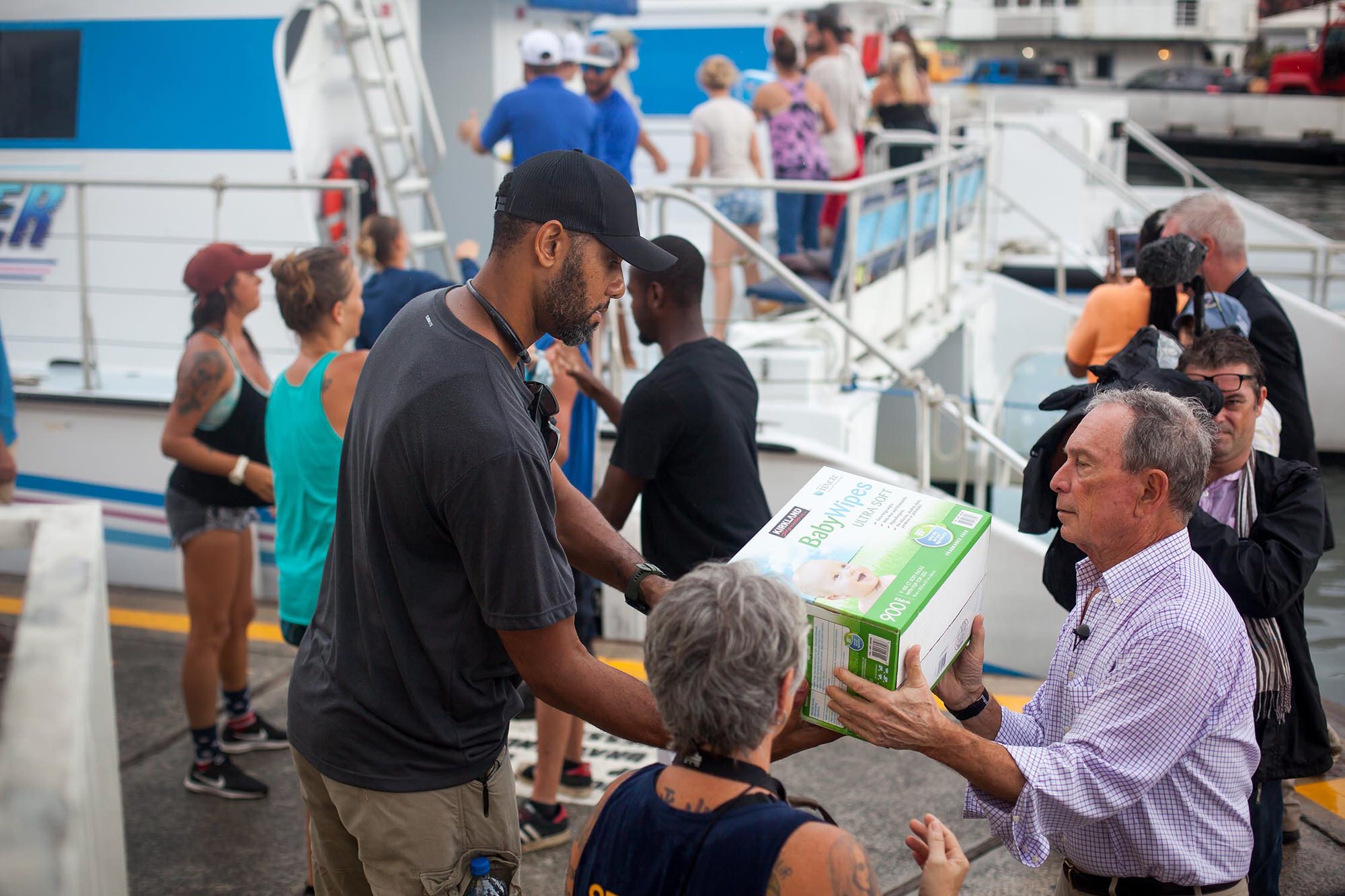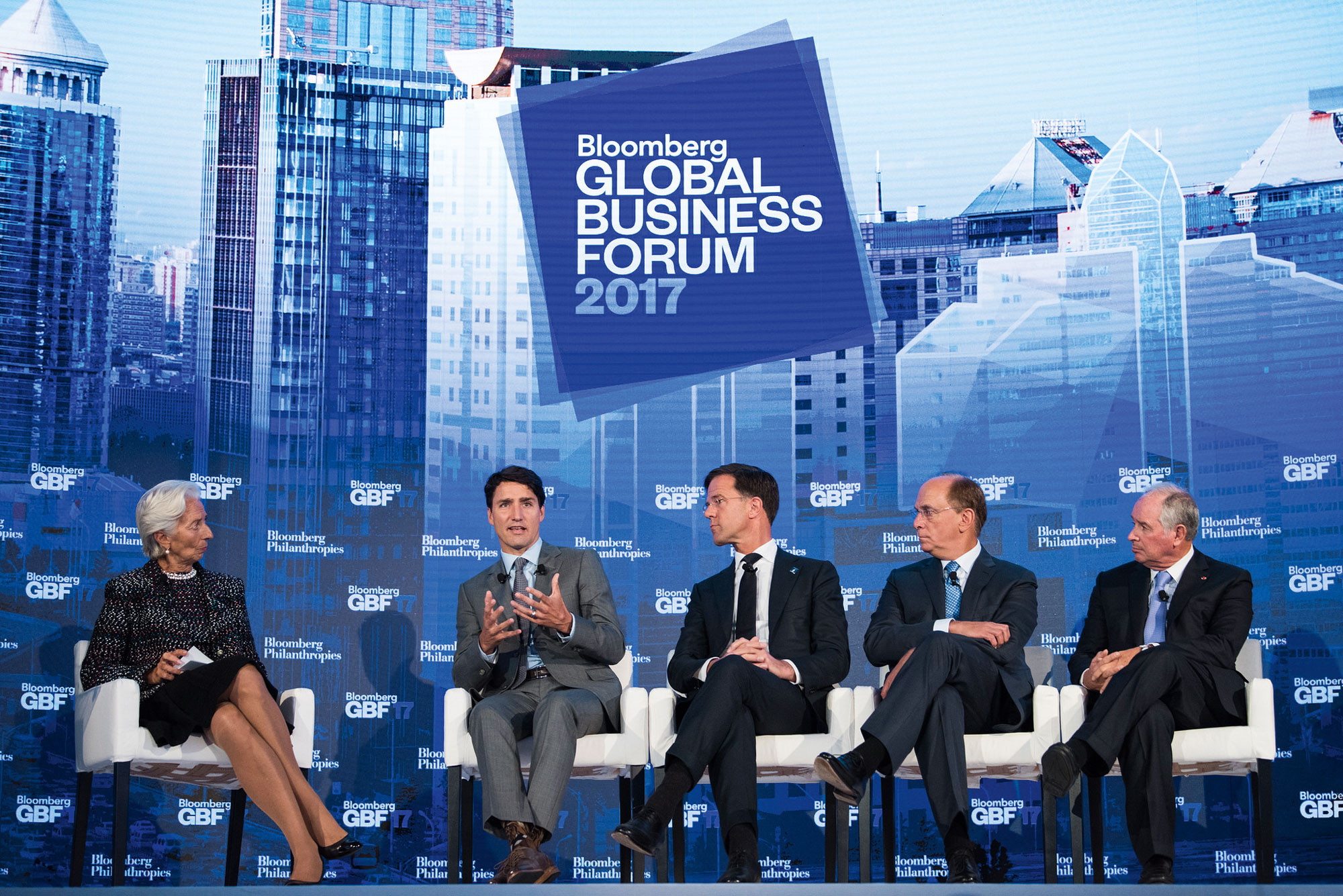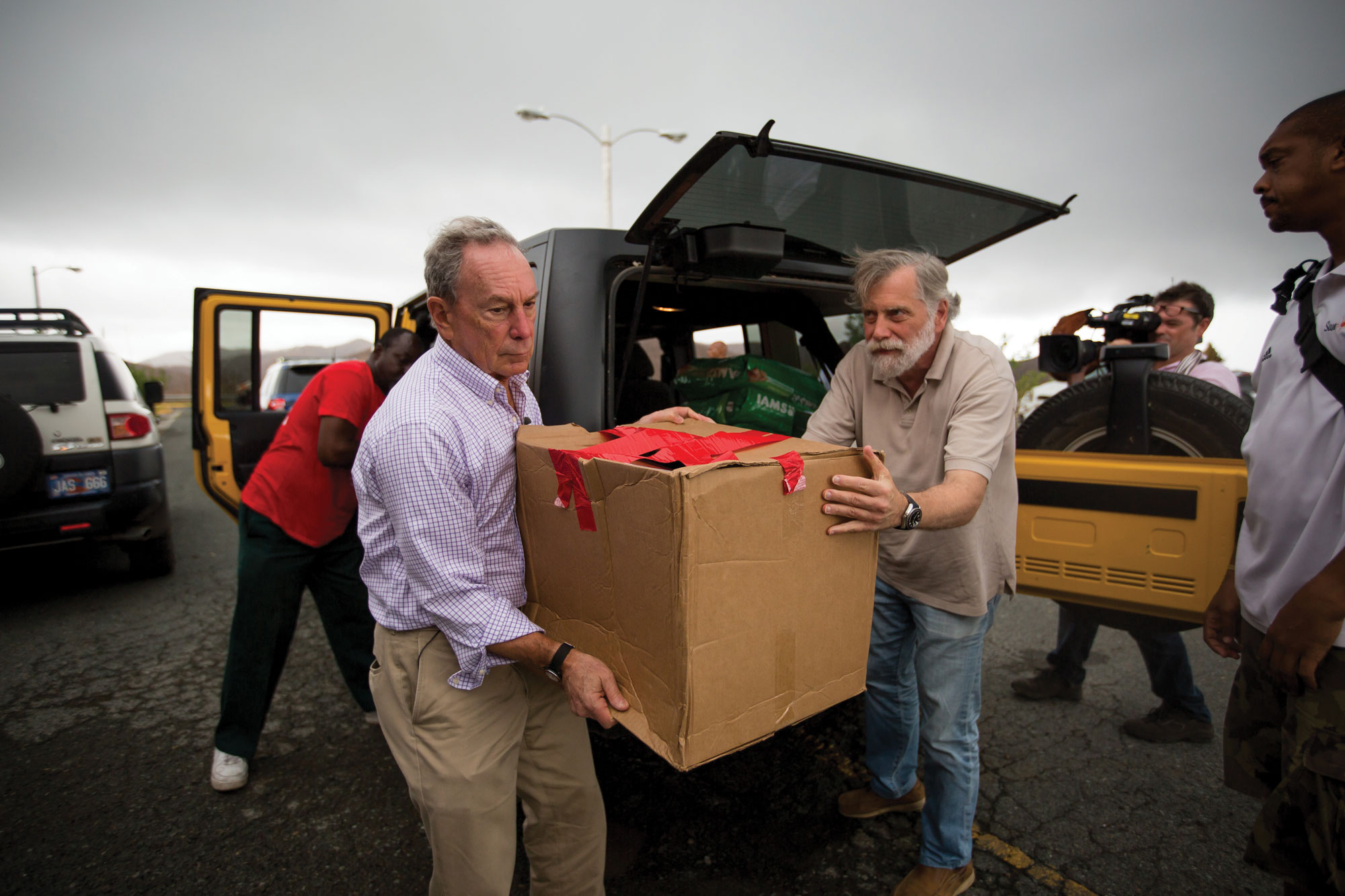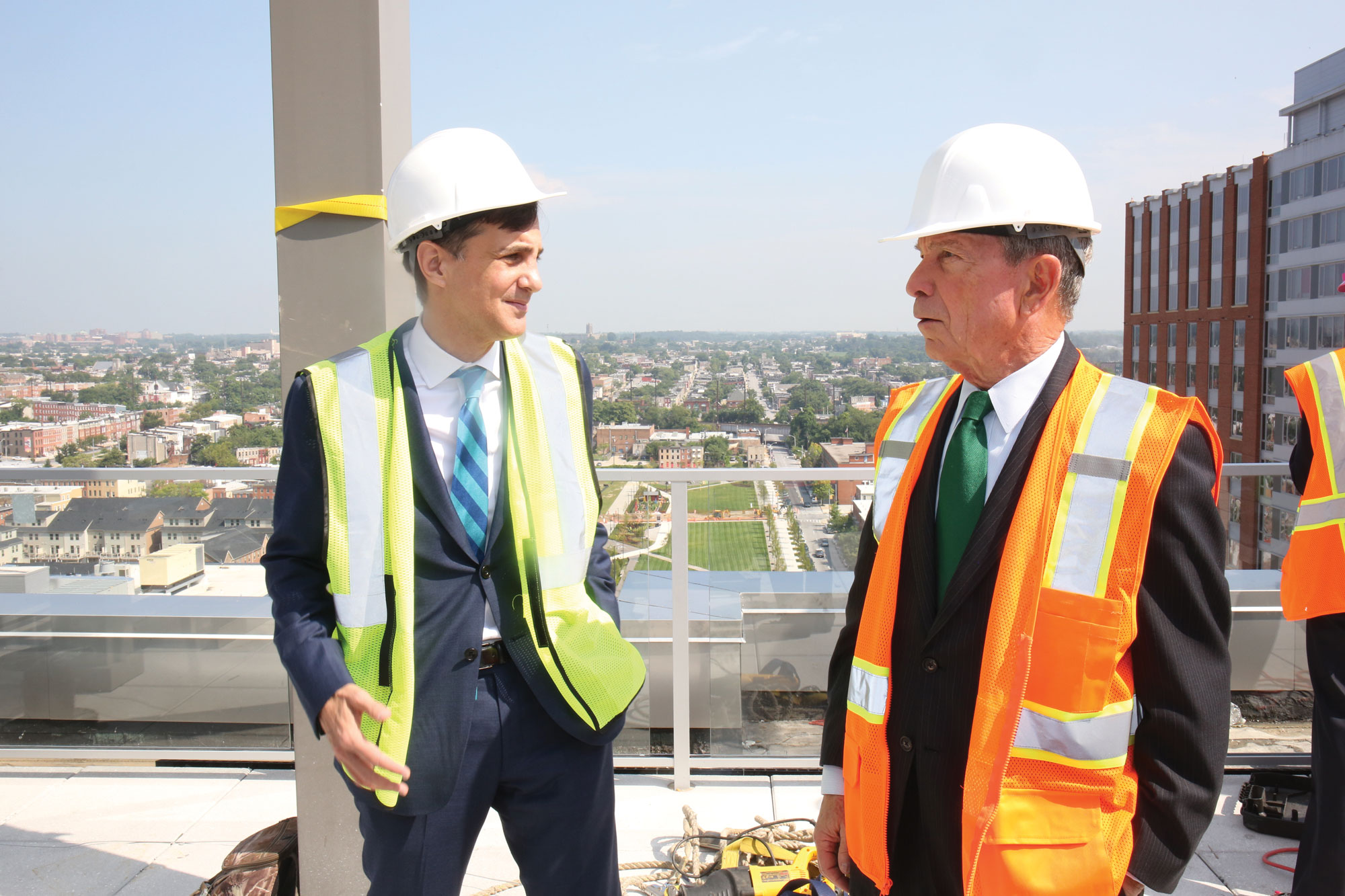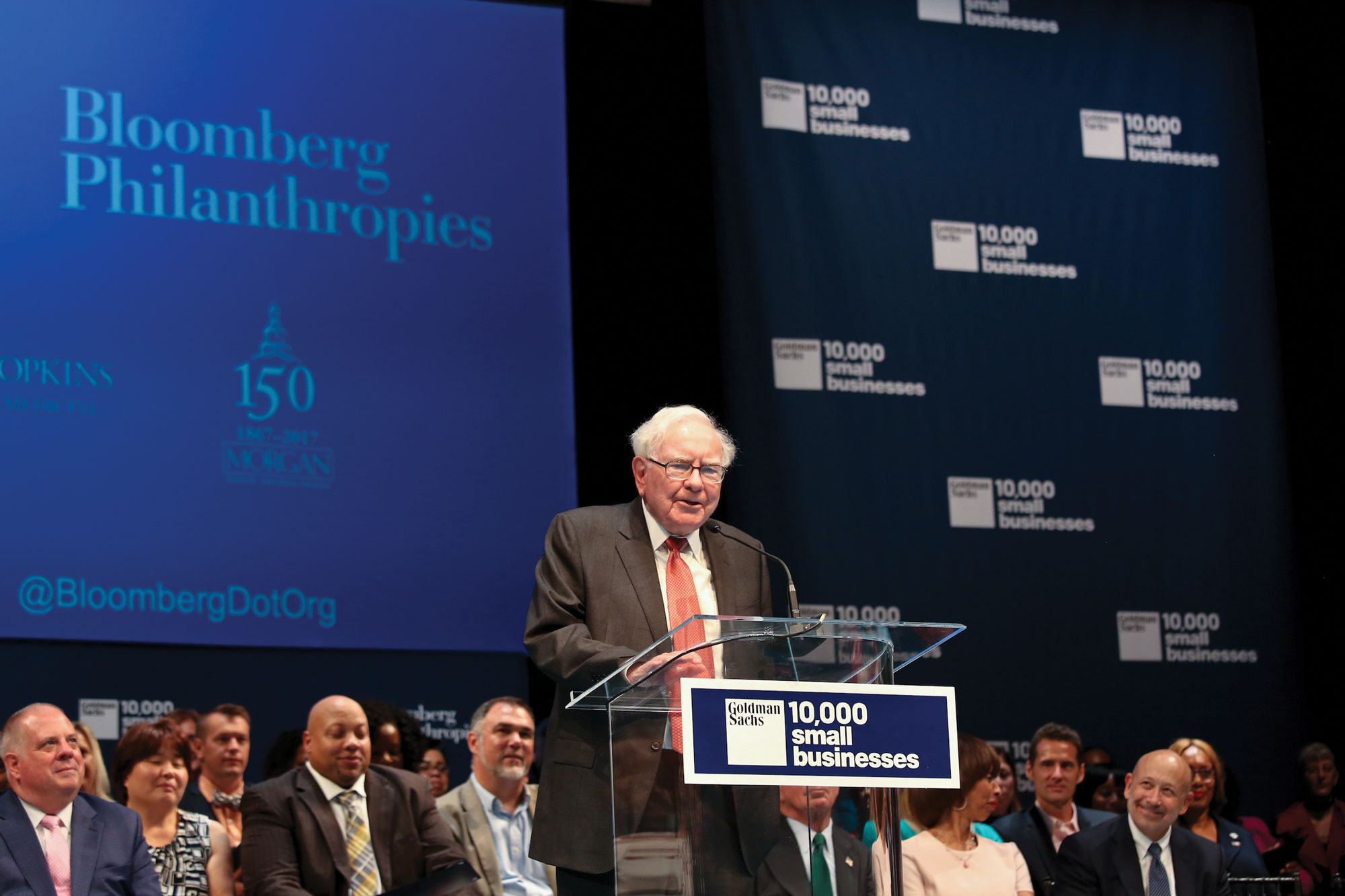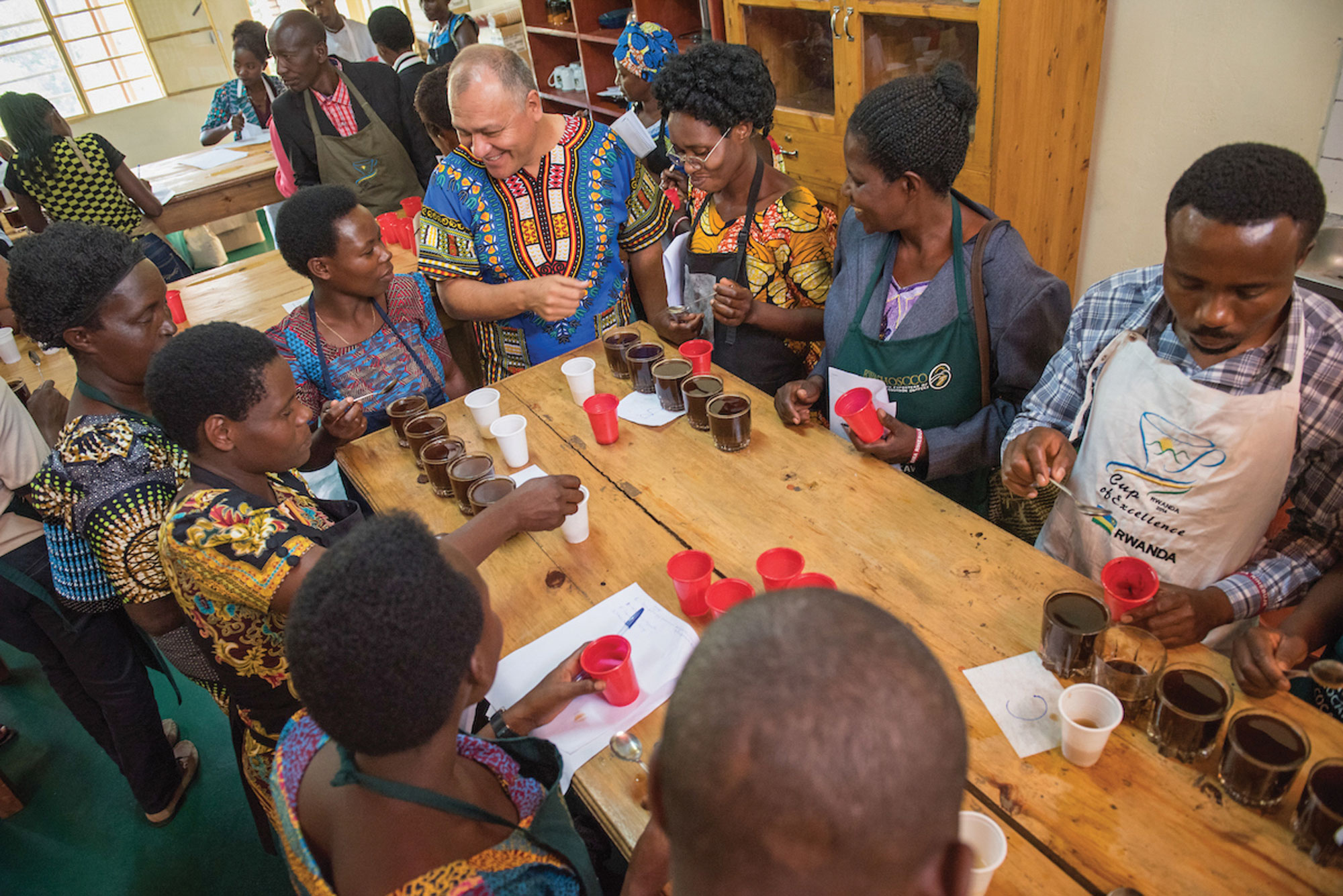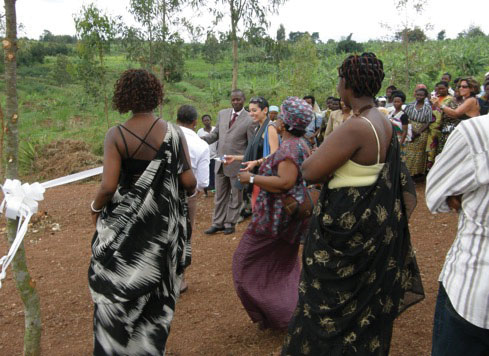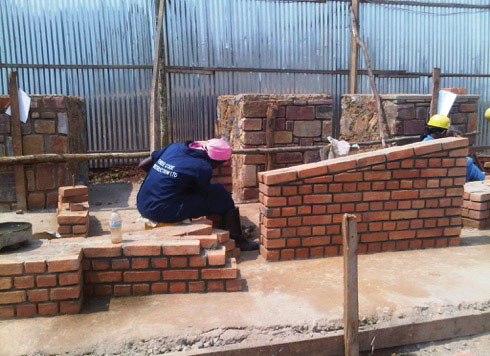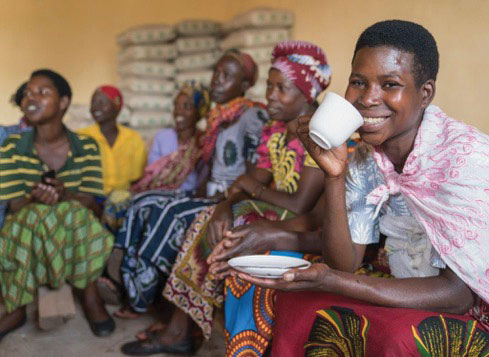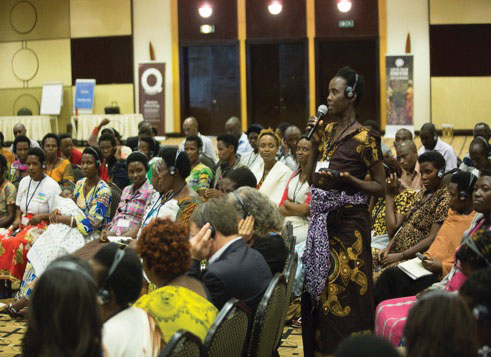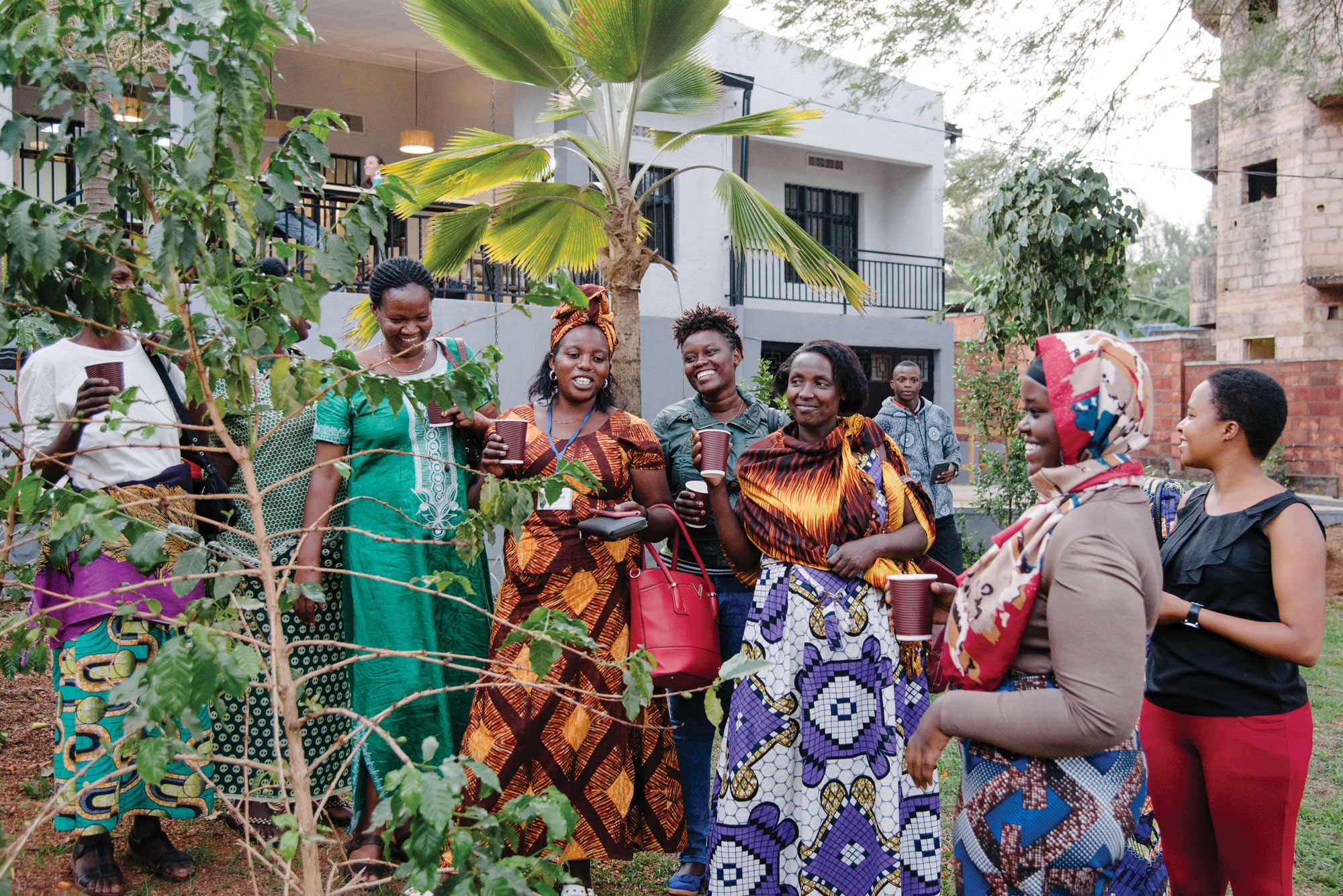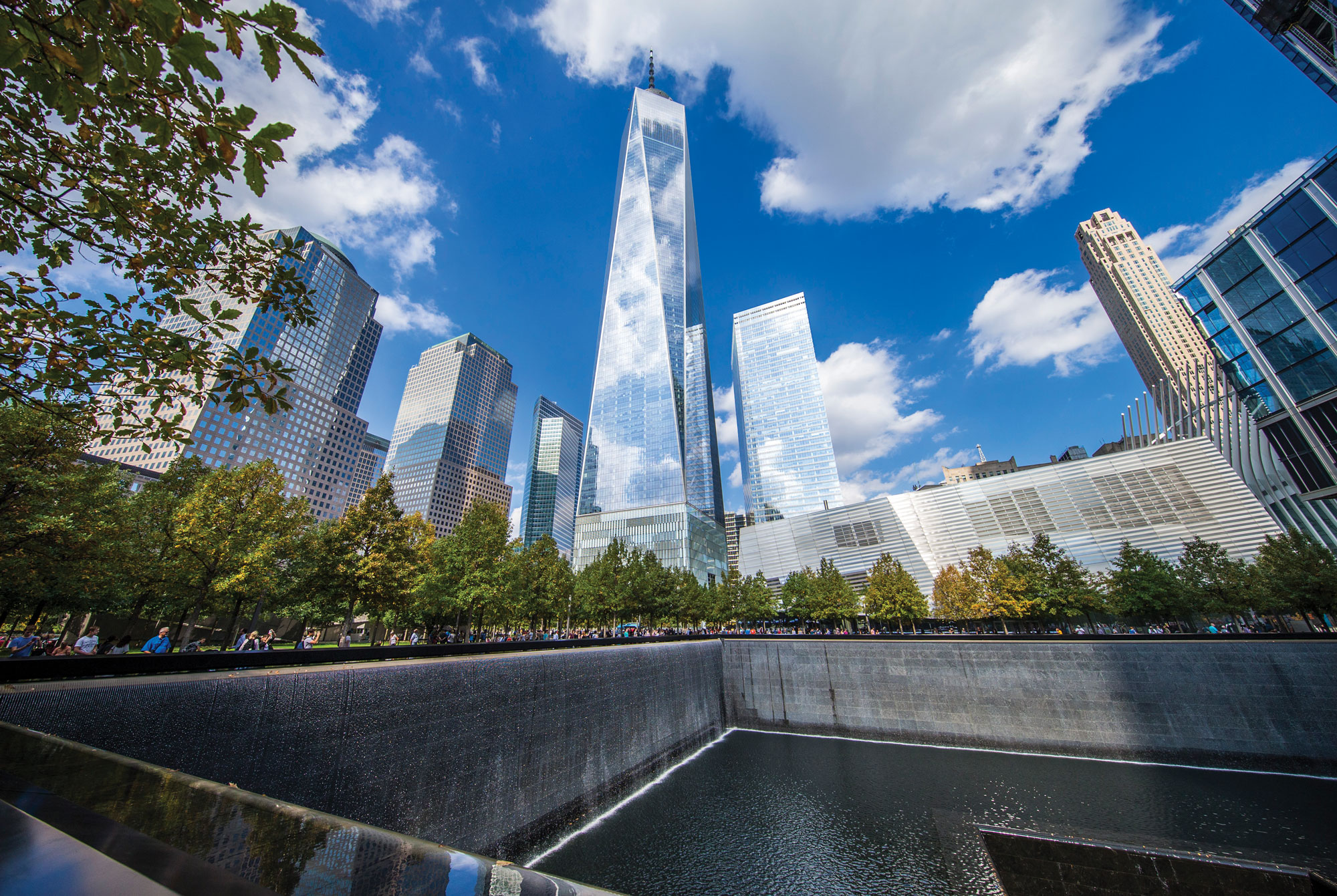Improving Lives Worldwide
Founder’s Projects
“There are plenty of big challenges facing our world, but the fact is we’ve never been in a better position to take them on.”
Mike Bloomberg
In 2017, Bloomberg Philanthropies and Bloomberg L.P. collaborated to host world leaders for a one-day conference in New York City during the opening of the U.N. General Assembly. The forum brought together a truly global gathering of leaders thanks to event partners including His Royal Highness Crown Prince of Saudi Arabia Mohammad bin Salman bin Abdulaziz, EXOR Chairman and CEO John Elkann, Alibaba Founder Jack Ma, Dangote Industries Limited President and Chief Executive Aliko Dangote, and Mahindra Group Chairman Anand G. Mahindra.
Through on-the-record mainstage discussions and private bilateral and multilateral meetings, more than 40 world leaders and 250 global CEOs came together to strengthen partnerships between government and business and address the most pressing economic issues facing the world today.
In September 2017, the U.S. Virgin Islands were hit with two deadly hurricanes within 12 days of each other, blasting the islands with 180 mile-per-hour winds that caused catastrophic damage.
Within days of the first hurricane, Bloomberg Philanthropies was on the ground and ready to help. Mike Bloomberg and Bloomberg L.P. co-founder Tom Secunda flew to the U.S. territory to meet with local officials and assess the needs in person.
In the days that followed, Bloomberg Philanthropies delivered more than 200 tons of supplies critical to the clean-up. This effort also brought in top emergency experts who helped local officials navigate the federal bureaucracy, monitor distribution and spending of disaster assistance, and develop a plan to clear debris and restore power quickly. Within three months of the storms, virtually all power was restored to the islands, much faster than other parts of the region and after previous hurricanes. The Bloomberg team continues to support staff on the ground helping to develop a long-term recovery and resiliency plan.
In response to many other natural disasters around the world, hundreds of Bloomberg employees volunteered their time to create more than 35,000 emergency hygiene kits to provide residents with everyday necessities.
“Our work in the U.S. Virgin Islands has shown the power public-private partnerships have to mobilize resources, fill gaps, and provide innovative solutions for relief and rebuilding efforts.”
Thomas F. Secunda
Co-Founder and Vice Chairman, Bloomberg L.P.
Ever since Mike Bloomberg donated $5 to Johns Hopkins University the year after he graduated, he has had a special commitment to his alma mater and its home city of Baltimore, Maryland.
Bloomberg Philanthropies has invested more than $1.5 billion in Johns Hopkins and supported efforts throughout the university, including undergraduate need-based scholarships, endowed professorships, and major capital projects. As a former chairman of the board and lead benefactor, Mike Bloomberg has helped to shape the trajectory of the university through his leadership.
Of particular note has been Bloomberg Philanthropies’ support of public health and health care efforts, including the Bloomberg American Health Initiative, the Charlotte R. Bloomberg Children’s Center, the Johns Hopkins Malaria Research Institute, and the Bloomberg~Kimmel Institute for Cancer Immunotherapy. In 2001, the Board of Trustees named its public health school the Bloomberg School of Public Health in honor of Mike Bloomberg’s long commitment to public health and his many contributions to the university.
In 2017, Bloomberg Philanthropies expanded its work to include a concerted effort to strengthen the broader city of Baltimore. This included investment in technology to help Baltimore police fight crime and keep the city safer such as surveillance cameras, license plate readers, and gunshot detection software. The city also has a Bloomberg Philanthropies-backed innovation team helping local officials think through new solutions to public safety. Additionally, Mike Bloomberg brought support and mentoring to entrepreneurs in Baltimore through his role as co-chair of the advisory council to the Goldman Sachs 10,000 Small Businesses program. Thanks to a co-investment by Bloomberg Philanthropies, the program celebrated the graduation of the first two classes of 59 Baltimore small business owners in 2017, with a third cohort currently enrolled.
Throughout 2017, Bloomberg Philanthropies also helped support Baltimore’s arts community and spur innovative ideas across the city.
Bloomberg co-hosted a one-day CityLab conference that brought together leaders from across industries who are working to improve Baltimore; expanded the Bloomberg Summer Arts Internship program to the city; funded an entrepreneurship training program for artists looking to start small businesses; and helped to bring a screening by the Tribeca Film Festival to Baltimore.
This past year was a milestone for the Women’s Economic Development program and its efforts to support opportunities for women to work in Sub-Saharan Africa and beyond. Celebrating its tenth year, the program remains committed to the core belief that women are central to economic growth.
Thanks to Bloomberg Philanthropies, nearly 200,000 women have enrolled in training programs to gain marketable skills and enhance their lives. By supporting women with job training and personal development resources, the program has helped the lives of families and communities totaling more than 923,500 people.
In 2008, Bloomberg Philanthropies invested in a pilot organic farming program in rural Kayonza, Rwanda, with a goal of providing agricultural training to 3,000 women. Within months, it was clear that the demand for training was much greater than expected. In its first year, the program trained 7,000 women.
As the program developed, it expanded beyond agriculture to other industries, always relying on local expertise and responding to local needs. Along with its partners, Bloomberg Philanthropies developed a training model that provides participants with three months of support in financial, basic rights, and wellness skills as well as individualized vocational plans for an additional three months of training. Graduates today are engaging in a wide range of work.
One of the program’s biggest success stories is the way in which female trainees have transformed the Rwandan coffee industry. Starting with agricultural training, which helped female growers pick the coffee bean at peak ripeness, the program grew to help increase the local demand for coffee through a series of coffee tastings across the country and expanded to connect local producers to international markets — improving incomes and the quality of Rwandan coffee along the way.
Today, coffee produced by graduates of Bloomberg Philanthropies’ partner organizations is served at Marriott, Radisson, and Sierra hotels in Rwanda as well as in Bloomberg L.P. offices around the world. Coffee grown by program graduates is also served by RwandAir on flights across Africa, Europe, and the Middle East — and has been featured in the Starbucks Reserve collection in the United States.
Building on the lessons learned in Sub-Saharan Africa, the Women’s Economic Development program is now working with partners to create the first global industry standards and fair practices for female entrepreneurs who create handcrafted products at home or in small, local workshops.
2008
7,000 women trained
2009
53,000 women trained
2013
102,000 women trained
2014
International market expansion
2018
Nearly 200,000 enrolled and 98% graduated
The 9/11 Memorial & Museum bears solemn witness to the terrorist attacks of September 11, 2001, and February 26, 1993. It serves as the country’s principal institution concerned with exploring the implications of the events of 9/11, documenting the impact of those events, and reflecting on 9/11’s continuing significance.
Becoming mayor of New York City just months after the 9/11 attack, Mike Bloomberg led the city through the aftermath of this national tragedy. The resilient spirit, hard work, and courage of countless New Yorkers enabled the city to make a remarkable recovery. In 2006, he became the chairman of the Memorial & Museum, working to help rebuild the World Trade Center site and revive Lower Manhattan.
